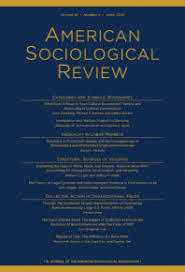 A few years ago, you may remember some news headlines discussing a study that suggested people — especially men — are more likely to cheat if their spouses earn more money. Well, it turns out those findings are less convincing than they initially appeared. But they’re not getting retracted.
A few years ago, you may remember some news headlines discussing a study that suggested people — especially men — are more likely to cheat if their spouses earn more money. Well, it turns out those findings are less convincing than they initially appeared. But they’re not getting retracted.
In a six-page correction notice, author Christin Munsch at the University of Connecticut explains that she made “several errors related to the coding of missing data,” which weakened most of her conclusions in the original paper.
The paper earned some attention from mainstream news outlets. For example, in 2015, The Washington Post wrote:
[Munsch] found that the less that men and women earned in income compared to their spouses, the more likely they were to cheat. This was especially true of husbands.
Men were also more likely to cheat if they made significantly more than their spouses, while women who made a lot more than their husbands were less likely to be unfaithful.
In Munsch’s correction notice, she says that, regarding the five conclusions from her original paper:
The original conclusion outlines five key findings: (1) for men, dependency increases infidelity; (2) for women, dependency also increases infidelity; (3) for men, breadwinning increases infidelity; (4) for women, breadwinning decreases infidelity; and (5) the influence of dependency is greater on men’s infidelity than on women’s infidelity. Analyses based on replication of the original article provide some support for conclusions 1 through 4, although these effects are not as robust as initially reported. Revised analyses do not support conclusion 5.
Omar Lizardo, Rory McVeigh, and Sarah Mustillo, the editors of American Sociological Review (all based at the University of Notre Dame), told us:
The coding errors were brought to our attention in November, 2017. The author submitted a re-analysis to us in February, 2018, which we reviewed in-house for statistical integrity. We considered retraction, but the author felt that some of the corrected findings had value.
The editors added:
The [Committee on Publishing Ethics] guidelines state that when a “small” part of the article is flawed, a correction is appropriate. In this case, there was disagreement about how much of the paper was flawed once the errors were corrected. Thus, we decided to ask the author to prepare a correction that described the errors, presented the new findings, and submit it for peer review. The correction was peer reviewed in the spring of 2018 by two expert reviewers. We tried to move the correction through the review process as quickly as possible to get the record corrected and give readers the information they need to make decisions about whether the work still has value.
We contacted Munsch, but haven’t heard back. In addition to writing the six-page correction notice, she has posted a 14-page explanation of the reanalysis on her website.
The original article, “Her Support, His Support: Money, Masculinity, and Marital Infidelity,” has been cited 16 times, according to Clarivate Analytics’ Web of Science.
In the correction, Munsch thanks Elizabeth McClintock for alerting her to an error. McClintock is a researcher who is based in the same department as the journal’s editors, at the University of Notre Dame. Indeed, Mustillo told us:
An assistant professor in our department found the errors, because she was analyzing the same dataset on a related topic. She brought them to the author’s attention. I believe the author then contacted us.
Update, July 25 2018 17:37 UTC: The story has been revised to show that some of the quotes are statements from all three journal editors.
Like Retraction Watch? You can make a tax-deductible contribution to support our growth, follow us on Twitter, like us on Facebook, add us to your RSS reader, sign up for an email every time there’s a new post (look for the “follow” button at the lower right part of your screen), or subscribe to our daily digest. If you find a retraction that’s not in our database, you can let us know here. For comments or feedback, email us at [email protected].
Wait, the *author* got to decide whether the article was retracted, because she personally felt that some of the corrected findings had value? If there was a disagreement whether there should be a retraction, why did the author apparently get to decide?